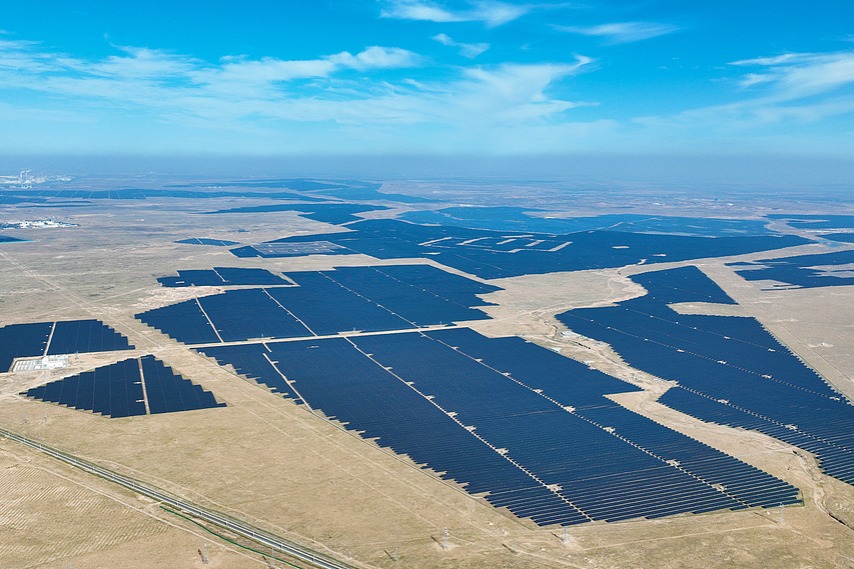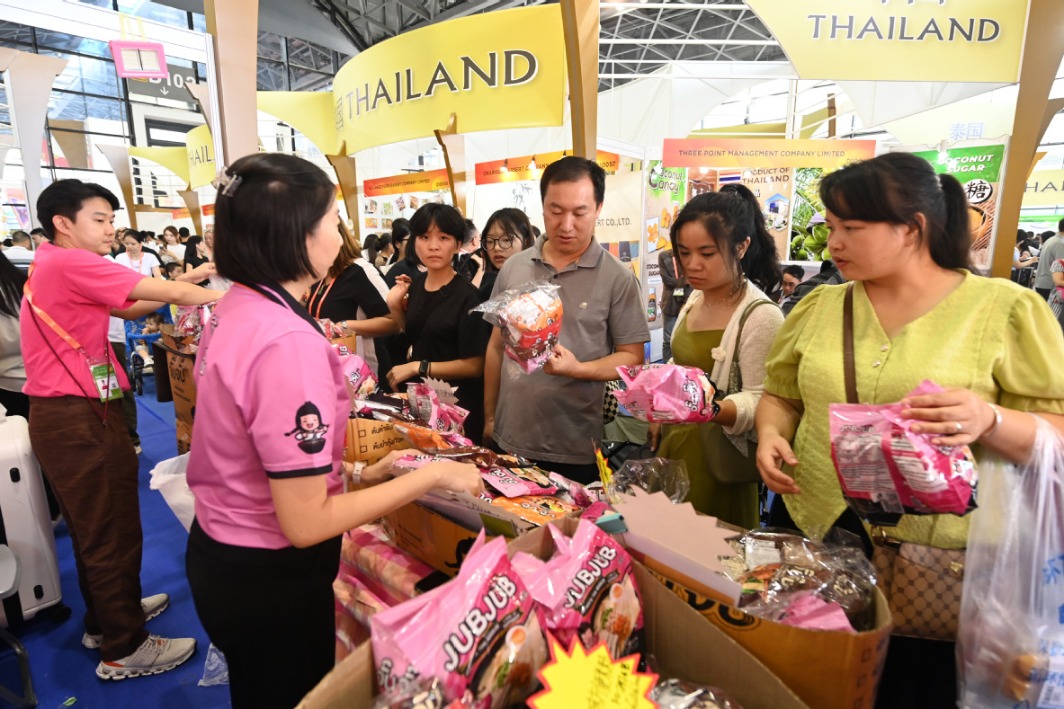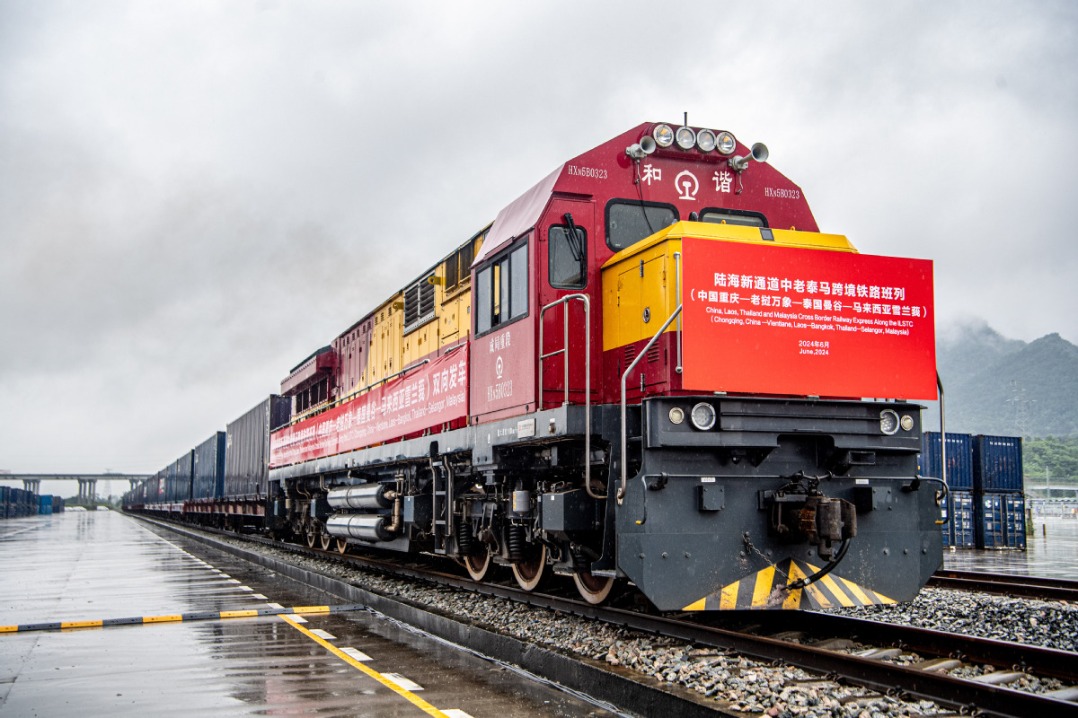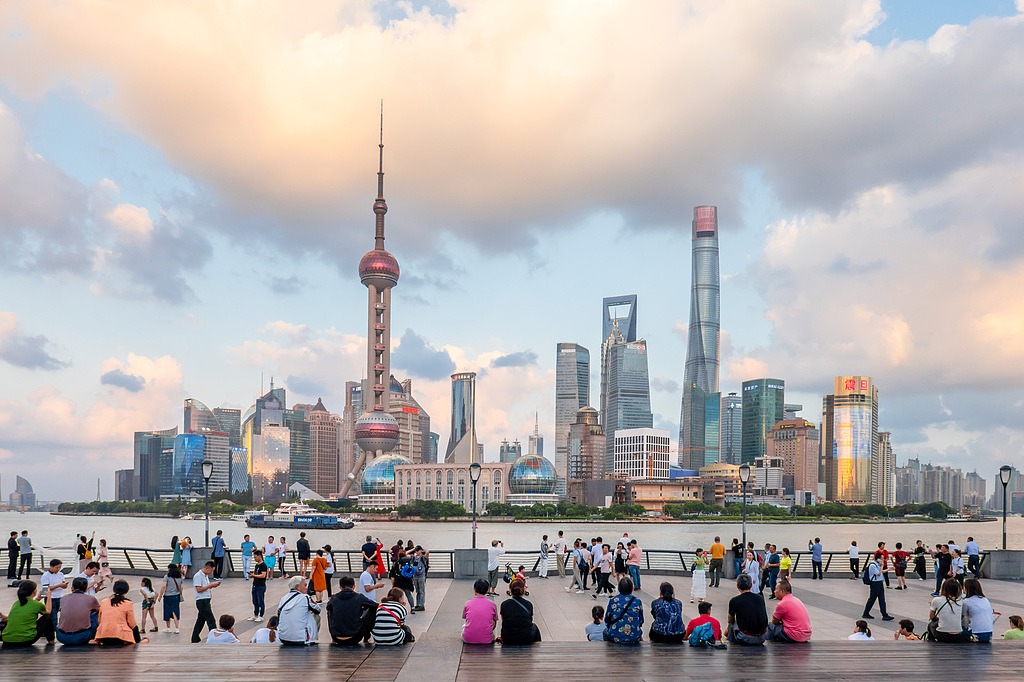Unilever eyes sweeter gains in China market


With innovation, localized strategy, MNC bullish on ice cream growth, says exec
With the nation's consumption recovery gradually picking up following the three-year COVID-19 pandemic, more multinational corporations are looking to tap into the Chinese market, as the world's second-largest economy offers vast opportunities with its massive consumer market.
For consumer goods giant Unilever, which operates ice cream brands Magnum, Cornetto, Viennetta and Wall's in the Chinese market, succeeding in the nation's competitive ice cream sector requires continuous product innovation, strategic investment and adapting to local preferences, said the company's executive.
"As one of the largest markets for Magnum and Cornetto, China is one of the major countries Unilever focuses on in terms of investment and growth, and we have a deep commitment to the Chinese market," said Matt Close, president of Unilever's ice cream business group.
"There is no reason in my mind why this market won't continue to develop, as the ice cream market in China has been growing steadily at somewhere between 5 and 6 percent throughout the last three years," Close said.
"We are focused on growing Unilever's ice cream business both globally and in China, with continuous innovation being the key to driving brand preference with consumers," Close said during an interview with the media on Thursday.
The ice cream market is rapidly expanding in China and globally. According to iiMedia Research, a Chinese market consultancy, China's ice cream market exceeded 160 billion yuan ($22.4 billion) in sales value in 2021, a yearly increase of 8.84 percent compared to 2020, while the global ice cream market stood at a value of $77.5 billion last year, according to a report by global market research company Expert Market Research.
Close said Unilever has been ramping up its ice cream production capacity in China to maintain its growth amid the expansion of the nation's ice cream market. In January 2022, the "Lighthouse Factory" of Unilever in Suzhou's Taicang, Jiangsu province, started operations. The facility, built with an investment of 100 million euros ($110.8 million), embodies many artificial intelligence-enabled production scenarios, making it the first lights-off operation system of Wall's in North Asian markets.
China is a market that highly values customization, and the group has been utilizing flexible production facilities to meet local needs, with the flexible production line at the Taicang factory as a prime example, as the facility is capable of quick switches between different ice cream categories and flavors, enabling more personalized and customized production, Close said.
"For example, we launched mini versions of Magnum and Cornetto ice cream to meet the different needs of consumers who want to enjoy a 'snackable' ice cream treat with fewer calories. This aligns with the trend of smaller ice cream sizes and better nutritional control," he added.
Unilever is also eyeing opportunities generated by the nation's flourishing e-commerce businesses to spur localization and growth in the ice cream business, Close said, adding that he had paid visits to some big names in the sector in China, such as Meituan and Douyin.
According to the executive, Unilever is investing 1.6 billion yuan into an all-category production base in Guangzhou, Guangdong province, its largest China investment in years. Slated for full operations in 2025, the factory will leverage smart manufacturing and supply chain innovations to enable flexible, customized production.

Product innovation and localization underpin Unilever's approach in China. "Shortly after Unilever established its presence in China, we set up the Shanghai R&D (research and development) center to learn more about consumers in China and developed a series of products for local consumers. From the first Paddle Pop HipHop to today's Magnum Matcha Ice Cream, we have always upheld the consumer-oriented R&D strategy in the Chinese market," Close said.
Since the start of Wall's China expansion in 2018, the brand has been gaining popularity nationwide, with the number of cities covered by Wall's products expanding rapidly from 35 in 2018 to 119 in 2023, the company said.
According to global market intelligence agency Mintel Group, Yili, Unilever and Mengniu remain industry leaders in China's ice cream market.
With more emerging players striving for a bigger share of the Chinese ice cream market, Unilever said it will continue expanding its portfolio, adapting production and engaging more Chinese consumers, and remains confident in ice cream's prospects in this strategic market.
Reaffirming its confidence in the nation's consumption market, Close said he expects "Cornetto to be the next billion-euro brand present in the Chinese market".
Apart from those efforts to spur growth in the Chinese market, Unilever also echoed the nation's green push by taking multiple moves to reduce its carbon footprint. The company teamed up with its upstream suppliers to introduce recyclable paper boxes suitable for cold chain storage, transportation and display, reducing plastic usage in related ice cream products by 91 percent, the company said.
"While prioritizing consumer demand, Unilever carries out a 'Happy Planet' mission to reduce the environmental impacts associated with producing ice cream," Close said.
"We're confident in our ongoing dedication to the Chinese ice cream market. The company will continue to bring delicious and top-quality ice cream products to Chinese consumers."




































